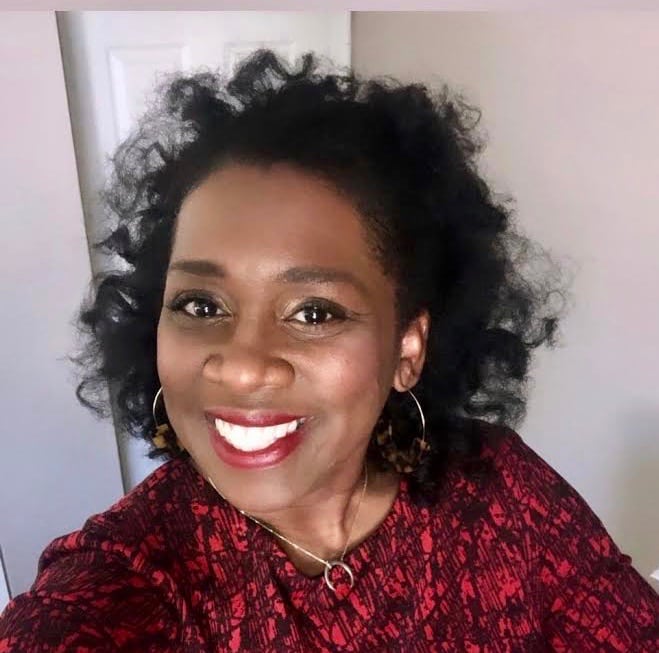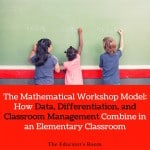Authors: Toya Jones Frank, Jenice View, Marvin Powell, and Jay Bradley.

“I’m a math teacher,” but [administrators and other teachers] don’t look at me as a math teacher because of who I am… [S]o that speaks volumes about what the rest of the country must think as well. (Asa, middle school mathematics teacher)
This quote comes from Asa, a National Board Certified middle grades mathematics teacher who we interviewed for a study about how race impacted Black mathematics teachers’ experiences within and beyond the classroom. He was lamenting about how race impacted his experiences as a mathematics teacher. Specifically, he noted how despite his expertise in teaching math, he was often sought out for non-curricular support like discipline, especially when related to Black boys. Further, he noted that how he was perceived at school likely mirrored how he was seen in the world.
Asa’s quote encapsulates the heart of our research: for Black mathematics teachers, teaching mathematics is not solely about content and pedagogy. Mathematics and race seem to be two topics that probably seem unrelated on the surface, yet they are related in ways that often go unnoticed. Rhetoric regarding the achievement gap, especially in conversations regarding Black children, leads some to believe that Black children are, by virtue of being Black, inherently intellectually inferior.
Many of us choose to enter the field of education for equity purposes, often guised under “closing the gap” between Black and Latinx students and their White and Asian counterparts. And while eliminating testing disparities remains important, we as a research team understand issues of race and mathematics achievement in complex ways. We will forever be grateful for seasoned educators and scholars such as Asa Hilliard, Claude Steele, Prudence Carter, Christopher Emdin, and Erica Walker for paving the way to new thinking. Through studying the work of educators such as these, we assert that passing standardized exams is important, but does not do the work of equalizing mathematics education in the ways that some assume it will. In fact, we would argue that to truly do what is best for Black children in mathematics, we have to be willing to address long-standing racial barriers that have led to the miseducation of both Black students in classrooms and society at large mathematical talents and capabilities of Black students. Additionally, we must look at the systems in place that year after year produces students who are not having success in mathematics classrooms.
Specific to mathematics, there is a faulty perception that mathematics is an objective and culture-free content area. However, many have outlined how mathematics often carries unwarranted prestige and is often used as a proxy for intellectual capacity and giftedness. Dr. Danny Martin, in his groundbreaking work on race and mathematics education, noted that mathematics participation and achievement are hierarchical in nature, with Black students often finding themselves positioned at the lowest rung of the achievement and participation hierarchies. Thus, just as students who achieve in mathematics are lauded for their “brilliance,” mathematics teachers are often revered for teaching a subject area that many find to be unapproachable. We have argued that the maintenance of this status quo thinking plays a role in Black teachers’ participation in the field. Our four-year study into this topic has yielded powerful data that we hope to share about the lived experiences of Black mathematics teachers and how these experiences impact recruitment and retention.
The data we share here are from our four-year study funded by the National Science Foundation entitled: Examining the Trajectories of Black Mathematics Teachers. We looked deeply at the role that race, and more specifically racism plays in the teaching, retention, and recruitment experiences of Black teachers. We examine the issues both as contemporary concerns but also from a historical perspective, given the role of the Brown v. Board of Education decision in the pushout of Black teachers in integrated schools. We collected data from several sources: interviews with retired Black mathematics teachers who taught pre- and post-Brown, focus groups with currently practicing teachers, and a survey of over 1,000 Black teachers who are presently teaching mathematics.
Since launching this research in 2017, we have been asked, “Why are you studying Black mathematics teachers?” Even our participants have shared that they never thought about their experiences of Being Black while teaching mathematics. We use data drawn from large datasets as well as lived experiences as Black educators to drive our rationale for this work. Secondary Black mathematics teachers comprise less than 1% of all U.S. teachers and about 6% of secondary mathematics teachers. Black mathematics teachers are concentrated in charter schools and overwhelmingly teach lower-level mathematics. In fact, only about 3% of all AP Calculus teachers identify as Black. As pay gaps are persistent across careers, we’ve also learned that Black women experience pay disparity when compared to their male and non-Black counterparts. Additionally, Black mathematics teachers have the highest rate of turnover of all mathematics teachers. It is our position that if we can get to the root of issues related to teacher turnover for the most vulnerable group of teachers, then we can better support all teachers. Further, we think that looking at retention issues through the lens of race sheds new light on a longstanding policy issue.
Each week, we will share a different aspect of our work connected to the Trajectories project, including how history shapes our current conditions related to recruiting Black teachers, what we are learning from Black teachers from the large-scale survey, the significance of Black teacher professional networks, and why we use Critical Race Theory to help us understand the Black mathematics teaching experience, especially in this current era of misinformation about the theory and its purposes. We look forward to sharing our research and engaging in conversations related to our study, and more than this, we look forward to future conversations about our research and beyond.





